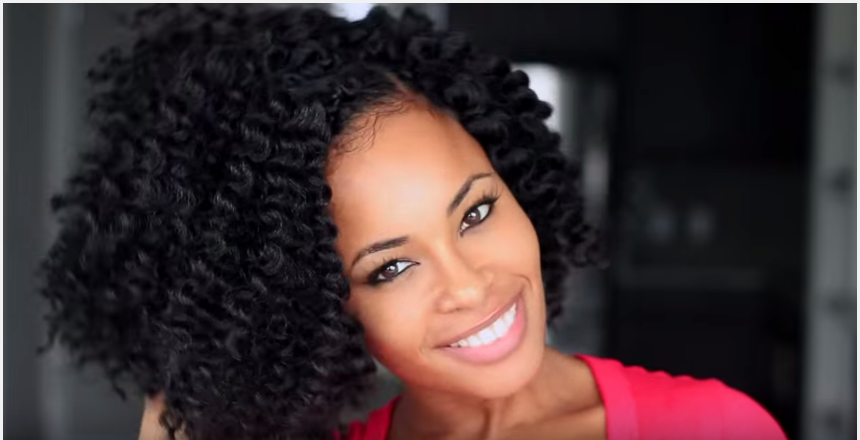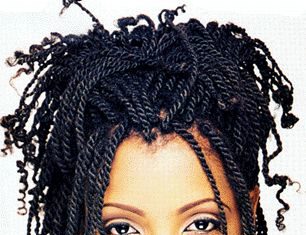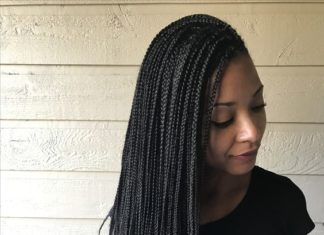How to Deep Condition Natural Hair
Everyone can benefit from deep conditioning every once in a while, but some hair types benefit from more frequent deep treatments than others. Dry hair is more susceptible to breakage, so if you have naturally curly/kinky hair, (which is more prone to dryness) deep conditioning is an especially important part of any healthy hair care routine. Deep conditioning helps restore moisture and repair damaged hair. Regardless of the current state of your hair (healthy or damaged), deep conditioning should be a part of your regular routine. Keep reading for more information about deep conditioning natural hair.
1Deep Conditioners vs Rinse-Out Conditioners
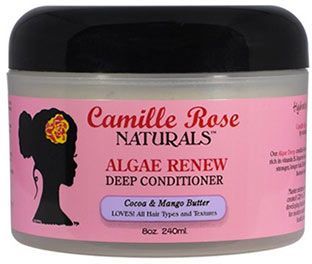
There are two main types of conditioners: rinse-out conditioners and deep conditioners. Both restore moisture to your hair after shampooing, but deep conditioners are formulated to give your hair a more intense surge of moisture. Most deep conditioners are marketed as masks or deep treatments and are meant to be left on the hair for 15 – 30 minutes, while rinse-out conditioners only take a few minutes to work. You should always use a conditioner after you shampoo, but you don’t necessarily need to deep condition after every wash. A good slippery rinse-out conditioner makes your hair much easier to detangle. Use your fingers and a wide tooth comb to gently remove tangles, working in small sections and starting at the ends, working your way up. You should always keep both a rinse-out conditioner and a deep conditioner in your hair care stash.
2Why Use A Deep Conditioner?
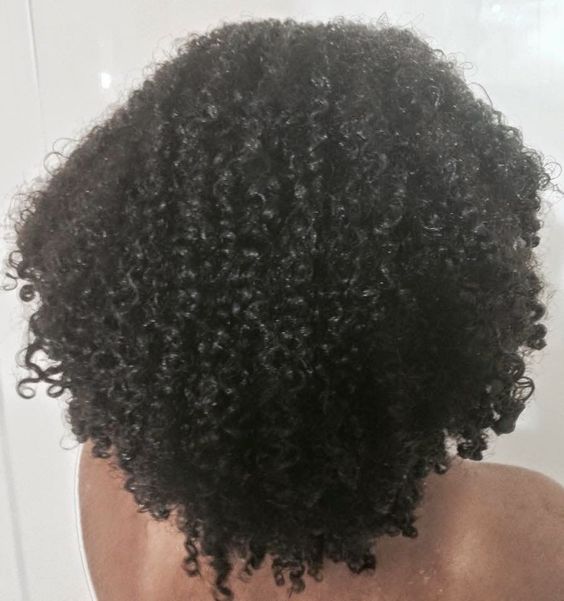
A good rinse-out conditioner does a pretty good job at restoring moisture lost from shampooing, so you might be wondering why it’s necessary to use a deep conditioner at all. Deep conditioners generally contain ingredients that moisturize your hair more intensely and effectively. They also often contain ingredients meant to help repair damage and strengthen the hair. It’s similar to washing your face every day with your normal face wash, then doing a deep cleansing pore mask once a week. Your regular face wash gets the job done on a daily basis, but a good deep treatment helps gives your skin some extra TLC and keeps it looking and feeling its best. That’s exactly what a deep conditioner does for your hair.
3How to Deep Condition Natural Hair
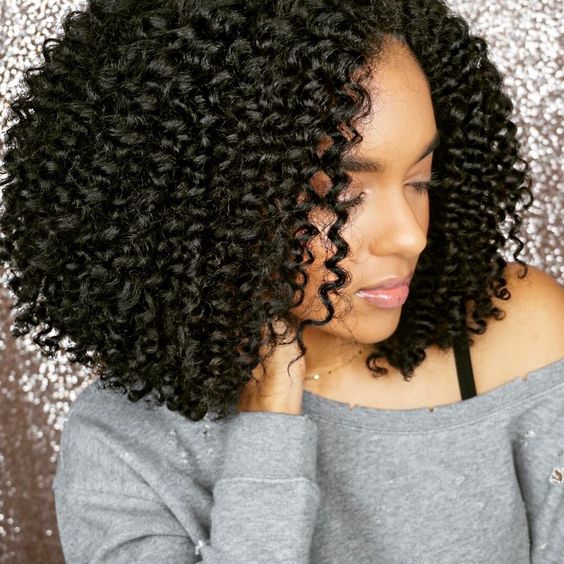
To deep condition, start on damp, freshly cleansed hair. Apply your deep conditioner to your hair and use your fingers and/or a wide tooth comb to help evenly distribute the product. Your ends are the oldest and most vulnerable parts of your hair, so make sure you focus on them the most. For the best results, try applying your deep conditioner one section at a time, then put your hair into four to six twists to prevent tangling. Cover your hair with a plastic cap and leave the conditioner on your hair for 15 – 30 minutes or as instructed. You can leave it on longer, but generally, the time listed on the instructions is more than sufficient. Some people prefer to deep condition before washing, but many find deep conditioning to be more effective when the hair is clean. However, you can always try both methods to see which one you prefer.
4Deep Conditioning Overnight
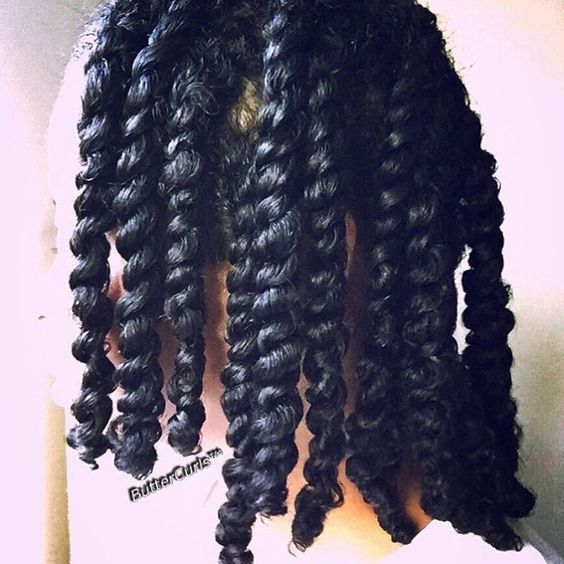
Deep conditioning for hours at a time (or overnight) is a slightly controversial method. Some people swear by it and say that their hair never feels better. But be wary of leaving your conditioner in for extended periods of time. It’s possible for this method to affect your hair’s elasticity and make it feel mushy and lifeless. It’s important to maintain a good moisture-protein balance, and over-conditioning can throw off this balance. So while it probably won’t do any harm if you fall asleep in your deep conditioner every once in a blue moon, there’s no tangible proof that deep conditioning overnight is more effective than deep conditioning for 30 minutes, so don’t feel obligated to try this method.
5Deep Conditioning With Heat
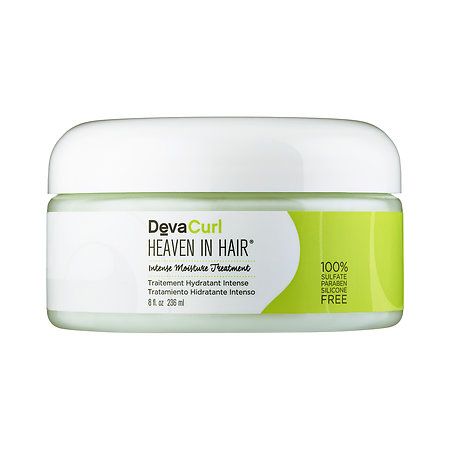
Due to the dangers of heat damage, many naturals prefer to limit the amount of heat they use on their hair. However, even if you’re typically a “no-heat natural” you can still benefit from using heat while deep conditioning. A hooded dryer or bonnet dryer is an ideal product to use for this process. To deep condition with heat, apply your deep conditioner, cover your hair with a plastic cap, and sit under the dryer (set to a low heat setting) for 15 minutes to half an hour, then rinse your hair thoroughly. Heat helps open up your hair’s cuticles, allowing the conditioner to penetrate your strands more effectively. If you have low porosity hair, deep conditioning with heat is especially ideal.
6How Often Should You Deep Condition Natural Hair?
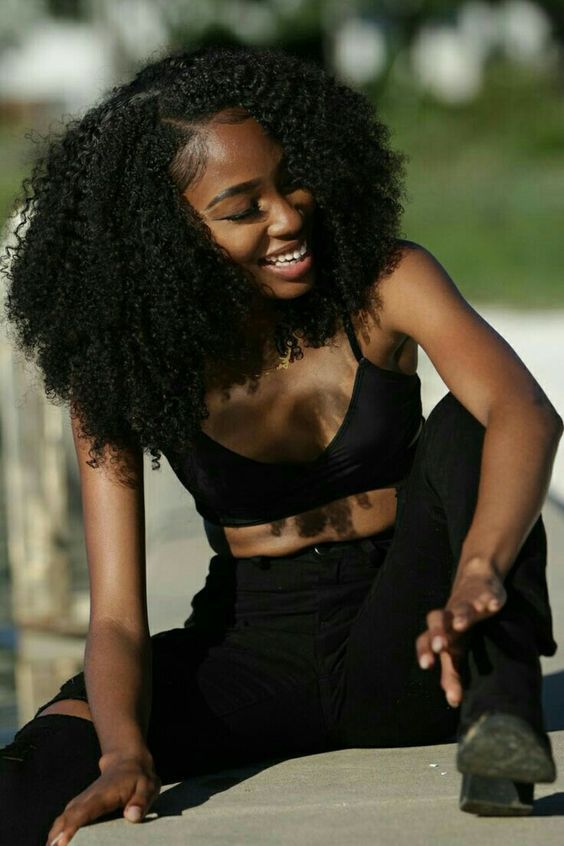
Everyone is different, so some people find they benefit from deep conditioning more frequently than others. Every two weeks is pretty common for many naturals, but others find that once a month is enough. If you have extremely dry hair or if your hair is damaged by chemical processes like hair coloring/bleaching, you may find that weekly deep conditioning is needed. The best way to figure it out is through trial and error. Pay attention to how your hair looks and feels and adjust your routine accordingly. If you feel like your deep conditioner isn’t working as well as it usually does, try clarifying your hair. You could have build-up on your hair that’s making it difficult for your deep conditioner to penetrate your hair. It also doesn’t hurt to switch up your products every now and then.
7Best Deep Conditioners For Natural Hair
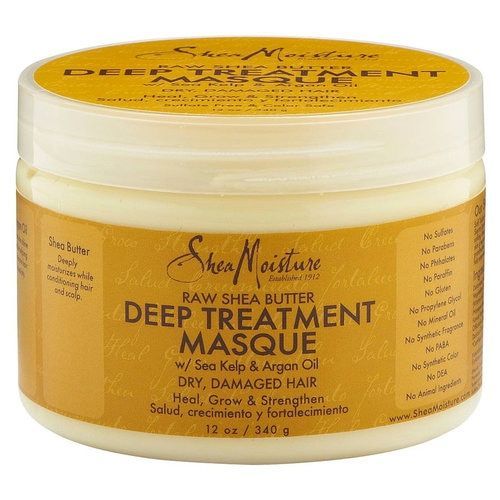
It’s always difficult to pinpoint which products are the “best,” since everyone’s hair is different, but there are definitely some products that tend to be effective for the vast majority of users. Shea Moisture’s Deep Treatment Masque is one of those highly rated products. It contains ingredients like shea butter, argan oil, and avocado oil to deeply moisturize your hair. Camille Rose Naturals Algae Renew Deep Conditioner is another great product that uses natural ingredients like cocoa butter, mango butter, and aloe vera juice to moisturize and strengthen the hair. You can also give TGIN’s Honey Miracle Hair Mask a try; it contains honey (which is a great humectant), olive oil, and jojoba oil to help restore dry hair, strengthen hair, and minimize frizz.
8Best Deep Conditioners For Natural Hair (Continued)
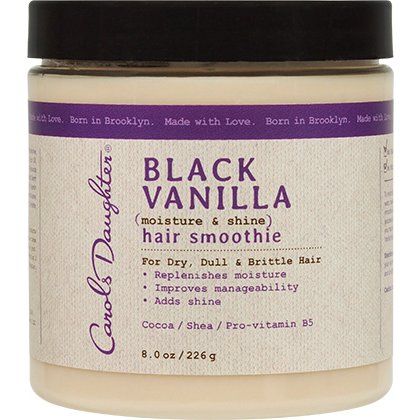
Carol’s Daughter’s Black Vanilla Hair Smoothie is another great deep conditioner. It contains cocoa butter, shea butter, and aloe and it smells good enough to eat. Carol’s Daughter has released many new products over the years, but the Black Vanilla Hair Smoothie continues to be a constant favorite. Devacurl’s Heaven In Hair is a little on the expensive side, but it’s worth every penny. All of Devacurl’s products are made exclusively for curly hair types, so Heaven In Hair is specifically formulated to provide the extra surge of moisture that natural hair craves. If you’re looking for a more affordable deep conditioner but you don’t want to sacrifice quality, Maui Moisture’s Agave Hair Mask is a great choice. Like all of the brand’s products, aloe vera juice is the first ingredient. This particular deep conditioner is specifically formulated to strengthen hair, using ingredients like agave and hibiscus.
9DIY Deep Conditioners
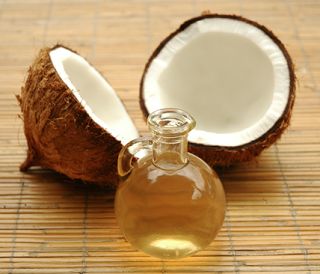
As an alternative to commercial deep conditioners, you can also make your own deep conditioner at home. The best part about making your own deep conditioner is that you can use many ingredients you probably already have at home. Coconut oil, avocado, olive oil, coconut milk, banana, and aloe vera juice are some of the most common ingredients for homemade deep conditioners. You can experiment with different combinations of oils and moisturizing ingredients until you find a formula that’s perfect for your hair.
10What to Do After Deep Conditioning Natural Hair
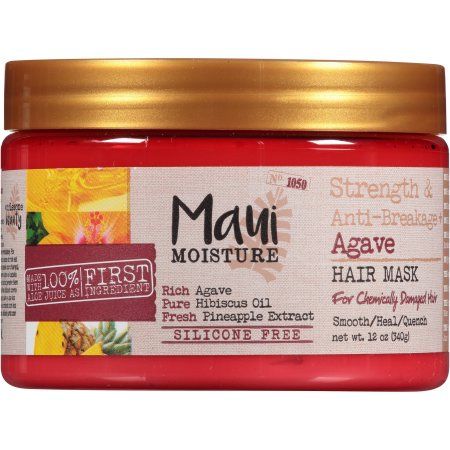
After you’ve thoroughly rinsed out your deep conditioner, you can apply a light leave-in conditioner while your hair is still damp. Some people like to use the LOC method for maximum moisture retention. The most ideal time to do this is after deep conditioning, however, it’s best to start on damp (not soaking wet hair). The LOC method doesn’t work for everyone but it’s an easy way to help retain as much moisture as possible. Deep conditioning is essential, but it’s also important to moisturize your hair as often as needed in between wash days. While some rinse-out conditioners can double as a leave-in, most deep conditioners cannot, so it’s important to rinse your hair thoroughly to prevent unwanted build-up that can weigh your hair down.
11Deep Conditioning Natural Hair – Final Thoughts
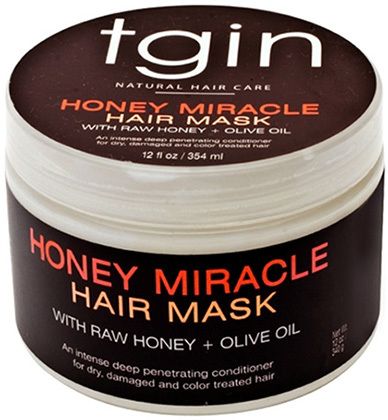
In closing, deep conditioning is an important part of maintaining healthy natural hair. If you struggle with dryness and breakage, finding the right deep conditioner and incorporating it into your routine can help significantly. If you have not yet found the right deep conditioner for your hair’s needs, don’t give up. There are several options out there (including recipes you can make yourself), so you’re bound to find one that works wonders on your hair.





